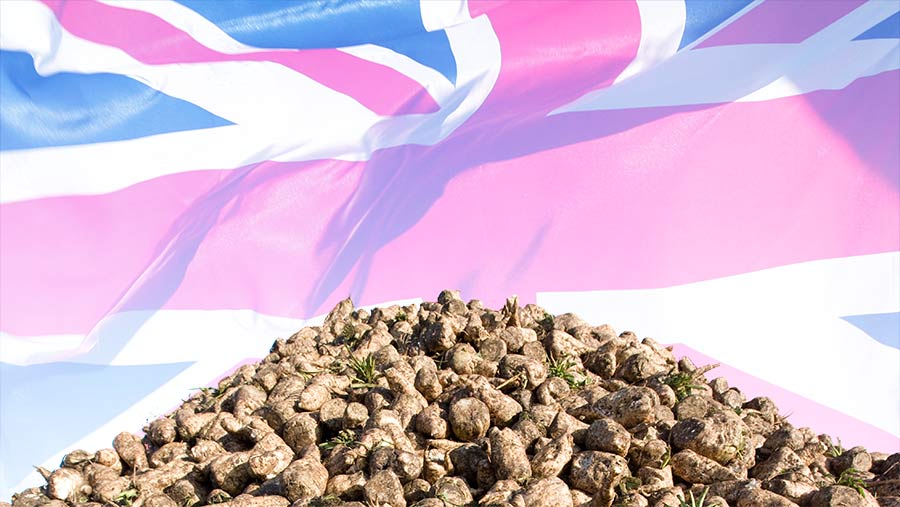The great British meals most vulnerable to Brexit
 © Tim Scrivener
© Tim Scrivener Classic British meals could become harder to source or more expensive if a no-deal Brexit goes ahead – because significant amounts of key ingredients are sourced from outside the UK.
Data from the Royal Institute of International Affairs and other governmental sources shows that British food and drink – such as fish and chips, Sunday roasts and cups of tea – is often created with ingredients supplied from other countries, both within and outside the EU.
See also: Trade minister grilled on agri-food post Brexit
The graphics below show where the ingredients of some familiar British meals come from.
English breakfast
The UK now produces less than half of the pork we consume, with 54% imported from Denmark, the Netherlands and other European countries: about £1.5bn worth of pork every year.
Denmark is also the UK’s biggest supplier of bacon, accounting for about 16% of what we consume.
However, most of the sausages eaten in the UK are still produced domestically, as well as 92% of eggs.
More Netherlands-produced tomatoes are eaten in the UK than domestically produced tomatoes. Overall, we produce less than 30% of the tomatoes we consume.
Sunday roast

In terms of meat, 95% of lamb is produced in the UK. New Zealand is the biggest importer of lamb into the UK, accounting for 3.4%.
Spain is the biggest importer on this list, shipping in 58.7% of the UK’s cauliflower and broccoli.
The UK produces about 94% of the milk it consumes, worth £4.6bn.
Brexit impact
Government figures show that overall the UK produces 50% of the food it consumes, with 30% imported from the EU and the remaining 20% from the rest of the world.
The impact of Brexit will depend largely on what type of deal is agreed with the EU.
A “soft” Brexit will see the UK stay in the single market and agree a customs deal, avoiding tariffs and border checks.
A Canada-style agreement will see tariffs remain for certain food goods, such as poultry, and border checks causing delays and additional costs.
According to the Journal of Wine Economics, a no-deal exit could see wine become 25% more expensive.
Government support ‘vital’
The NFU has spoken about the UK’s poor self-sufficiency, stating in August that the domestic food supply would run out within the year.
Gail Soutar, chief EU exit and international trade adviser at the NFU, said as the UK’s self-sufficiency in food was declining, and added that there should be a focus on maximising the food that the nation produces, which would deliver a wide range of economic and environmental benefits.
“Every British citizen should be entitled to a safe, traceable and high-quality supply of British food, produced to some of the highest animal welfare and environmental standards in the world,” Ms Soutar said.
“It is vital that the government recognises the strategic importance of domestic food production and supports this in a new domestic agricultural policy.
“As we move closer to leaving the European Union, it is in everyone’s interest to reach a deal that allows food and farming to have a vibrant future.
“[The EU is] our largest trading partner, and the trading relationship between the UK and EU is crucial. The NFU has maintained that free and frictionless trade is central to that and urges both sides to reach a deal that works for everyone.”
Keeping trade with the EU as frictionless as possible without compromising food safety or weakening high standards is a key aim for Defra.
A spokesman said: “The UK has an excellent level of food security, built on access to a range of sources including strong domestic production and imports from third countries. This will continue to be the case.”
Credit broker Moneypod pulled together the publicly-available data on food sources to create the infographics.

